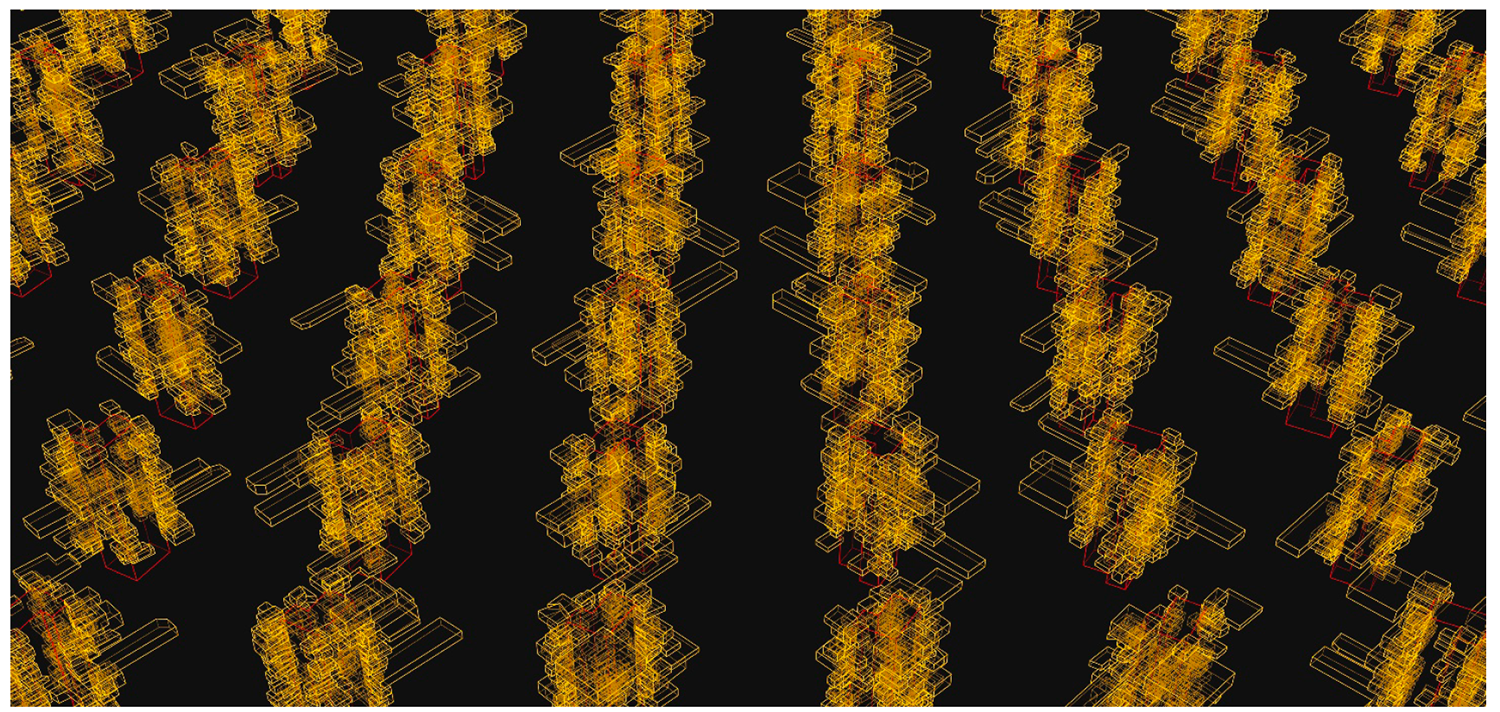Difference between revisions of "Exposing Genetic Algorithms: A Tool for Designers to Curate Bespoke Genetic Algorithms for Generative Design Methodologies"
Abel Maciel (talk | contribs) |
Abel Maciel (talk | contribs) (→Conference Paper) |
||
| Line 16: | Line 16: | ||
=Conference Paper= | =Conference Paper= | ||
| − | [[File:PDF-Icon.png |Left|50px|link=https://www.dropbox.com/ | + | [[File:PDF-Icon.png |Left|50px|link=https://www.dropbox.com/s/eljw8ezjqhrt430/DCIO2021_S1-4_T.Le.pdf?dl=0]] [https://www.dropbox.com/s/eljw8ezjqhrt430/DCIO2021_S1-4_T.Le.pdf?dl=0 Conference Paper]. |
=Keywords= | =Keywords= | ||
Revision as of 17:30, 13 June 2022
DC I/O 2021 Paper by TONY LE.Abstract
Genetic Algorithms, or GAs, are search methods inspired by the process of natural selection. This paper investigates how designers can take control over the curation of a genetic algorithm for their generative design methodologies, through the development of a GA design tool that has been tested on three study models. Within the discipline of architecture, generative processes with GAs are commonly used to either exploit, by optimizing towards a design criteria, or explore, by finding novel design solutions. However, the generative process can be limited by the design algorithm, especially if they were formulated externally from the design project or industry. Therefore, the algorithms designed by computer scientists are often generic and aim solely for optimal efficiency. So, the paper explores if further control over the algorithm can improve the designer’s ability to explore, as well as exploit, their design solution space. This can be accomplished through the development of a GA tool that exposes the algorithmic framework, allowing users to manipulate and reconfigure the processes for their own objectives. Ultimately allowing designers to develop bespoke GAs tailored to their own design projects.
Presentation
Conference Paper
Keywords
Genetic Algorithms, Evolutionary Computation, Multi-Objective Optimization, Generative Design
Reference
DOI: https://doi.org/10.47330/DCIO.2021.JGRN4011
Bibliography
PENDING

